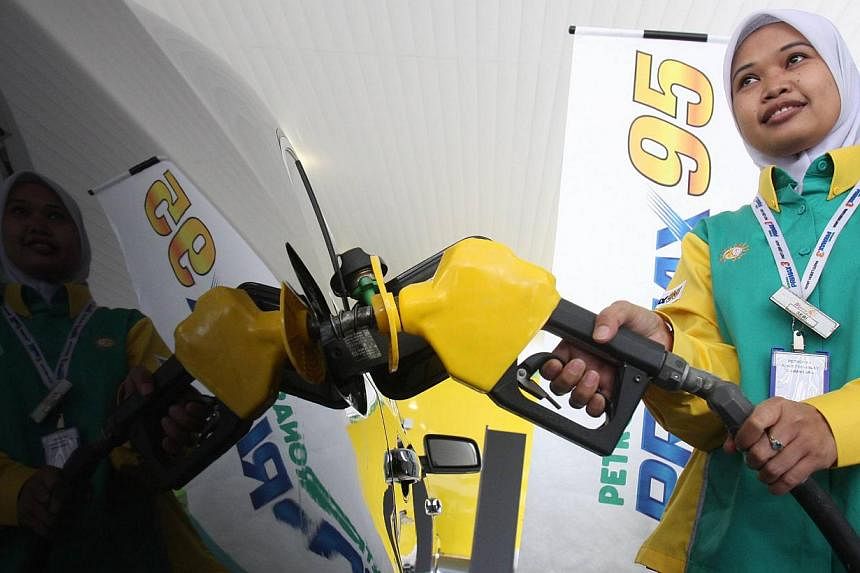KUALA LUMPUR (THE STAR/ASIA NEWS NETWORK) - The RON95 petrol prices in Malaysia could be maintained or revised down by about 5 sen to 10 sen at the current global crude oil prices as the government puts in place a managed float which will take effect on Dec 1.
CIMB Economic Research said this will have a benign direct impact on overall inflation, but this might possibly change if oil prices continue to decline.
"We estimate that every 5 sen decline in RON95 prices shaves off about 0.2 per cent of CPI on-month. If oil prices decline further, this would help defray the spike in inflation as a result of the GST's implementation," it said.
The research house said this further reinforced its view that the Overnight Policy Rate (OPR) will be kept on hold amid a moderate growth outlook and higher external risks.
Last Friday, the Domestic Trade, Cooperatives and Consumerism Minister announced that from starting Dec 1, fuel subsidies for RON95 petrol and diesel will be abolished and their prices will follow a managed float under the Automated Price Mechanism (APM), similar to the mechanism in place for RON97 petrol price.
"This is in line with the government's subsidy rationalisation agenda and a positive signal indicating that fiscal reforms are progressing in the right direction. The decision to float is timely as the switch should have a benign impact on inflation given that the average market price is close to the current fixed retail price.
"Moving forward, falling global oil prices put the possibility of lower inflation on the table, given a more direct pass-through of falling global oil prices to domestic pump prices," it said.
CIMB Research pointed out the move should help the government achieve its fiscal deficit target of 3.5 per cent of GDP for this year as well as further reinforces next year's target of 3 per cent.
"The savings from the government's subsidy bill will allow it to better dictate the direction of the fiscal deficit. If government revenue streams from oil-related revenues, GST and income tax collections remain intact, the government can re-channel the RM12 billion earmarked for fuel subsidies through BR1M cash handouts or other means of targeted assistance.
"Otherwise, the savings can be used to offset any potential declines in revenue as a result of slower growth or lower oil prices in order to keep its deficit reduction on target," it said.
CIMB Research added that at a time of declining global oil prices, the move will help loosen the otherwise tightened purse strings of a large majority of Malaysian households who have had to cope with rising costs through the year.
The MIER consumer sentiment index has fallen below 100 in three quarters since 3Q13. Although resilient thus far, private consumption has seen some moderation (2013-2014 average: 7.0 per cent versus 2011-2012 average: 7.6 per cent).
"We still think that the odds of a rate hike next year are slim, given the moderating growth and higher external risks," it said.

